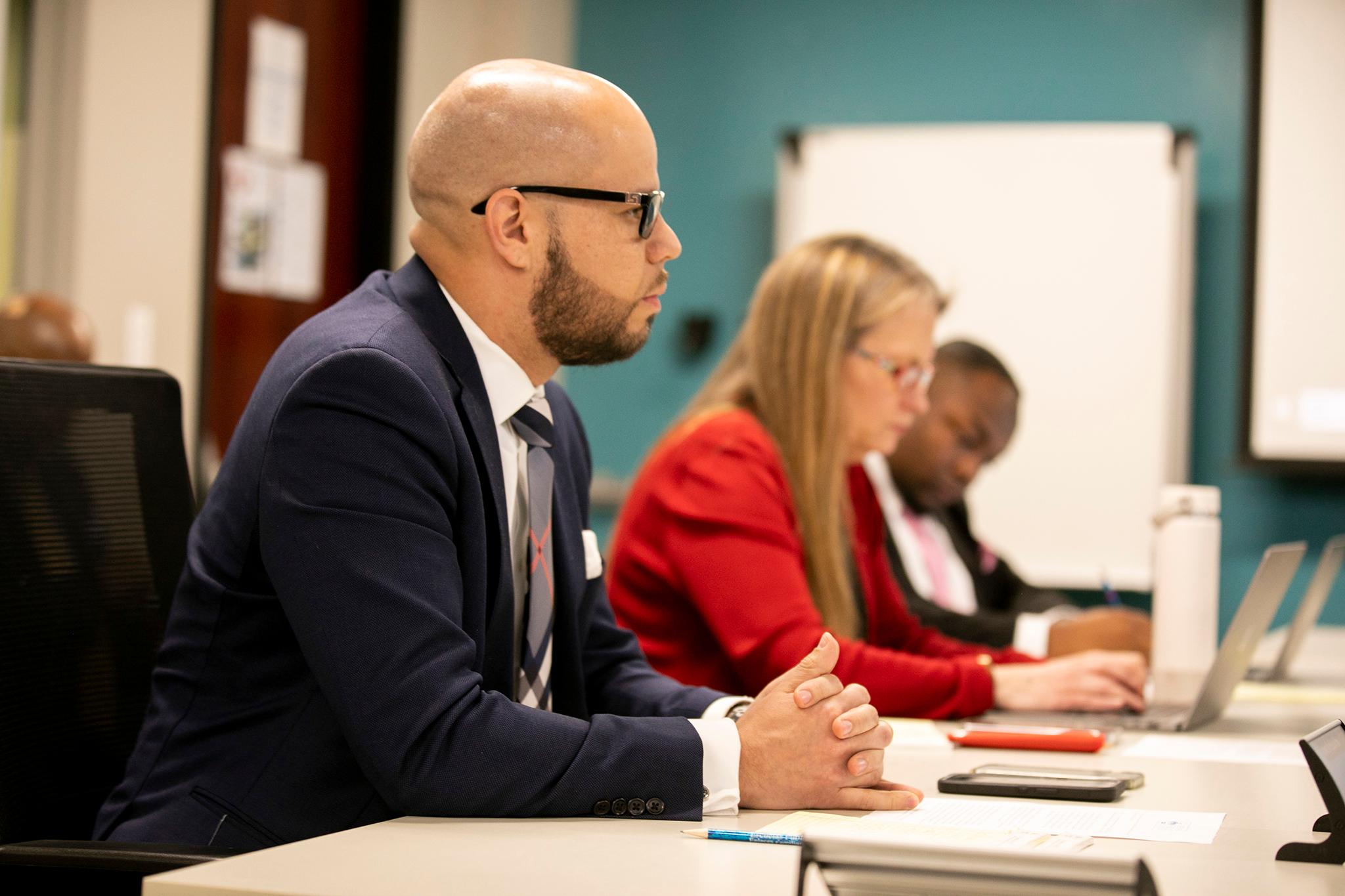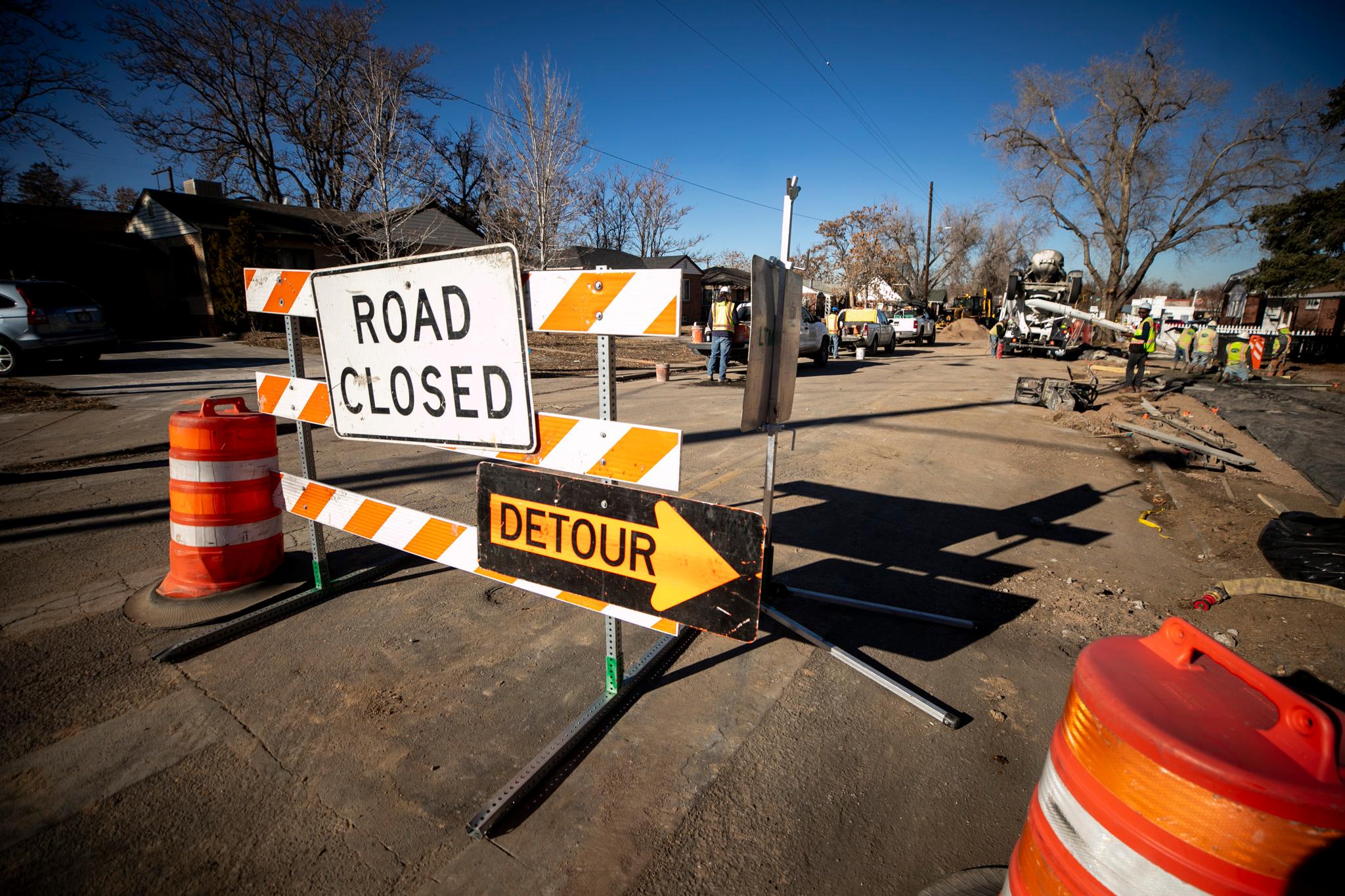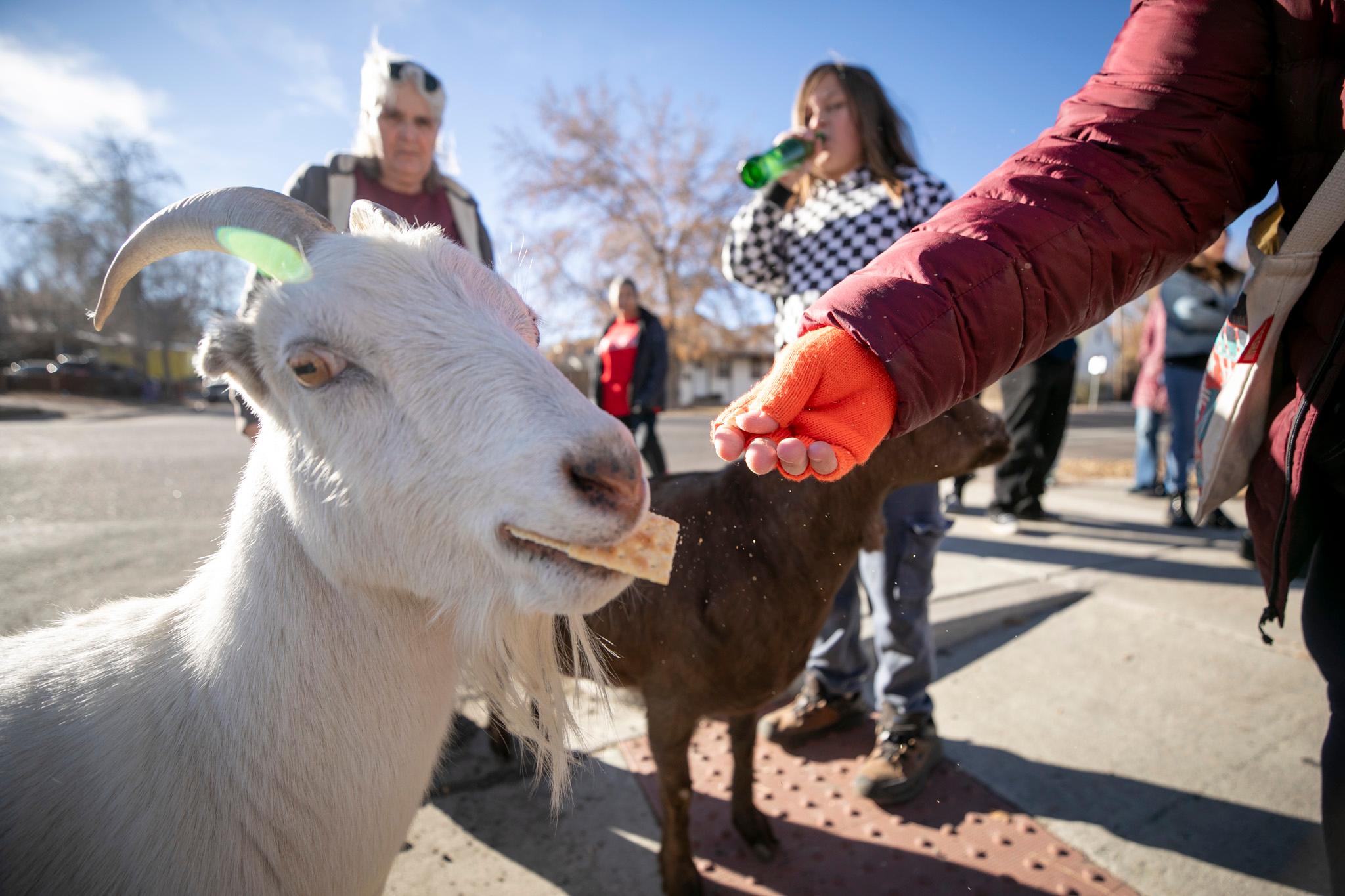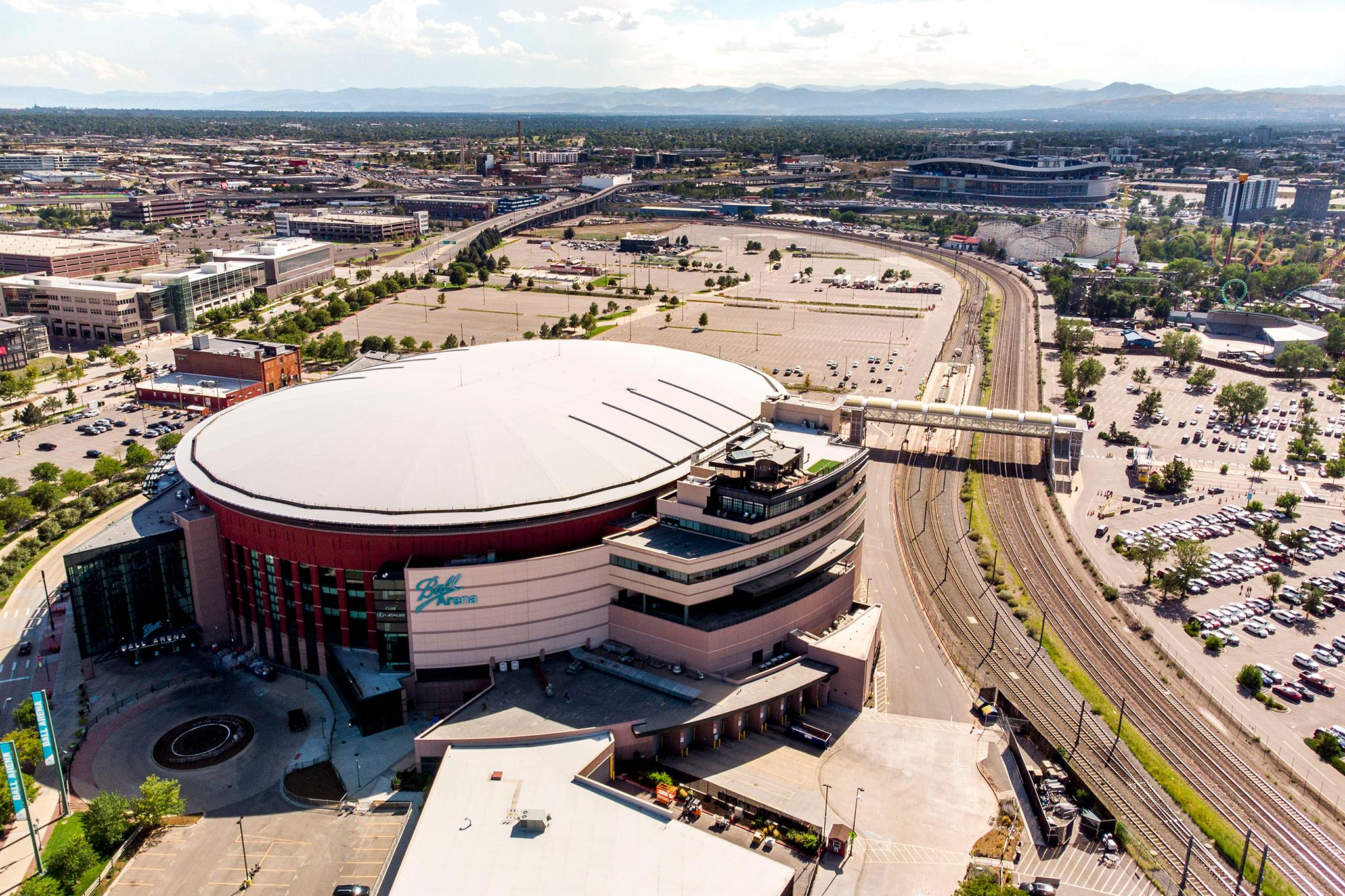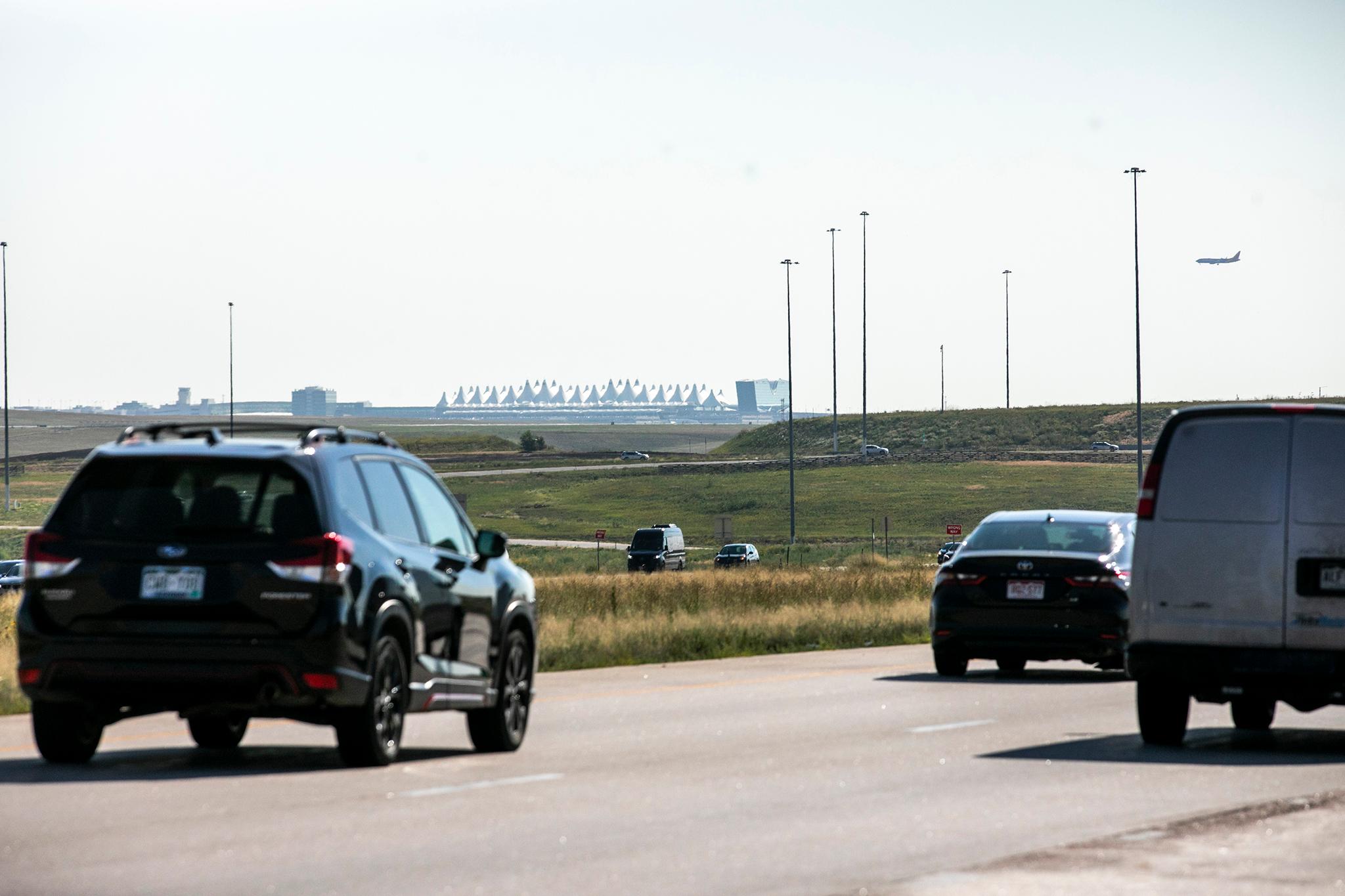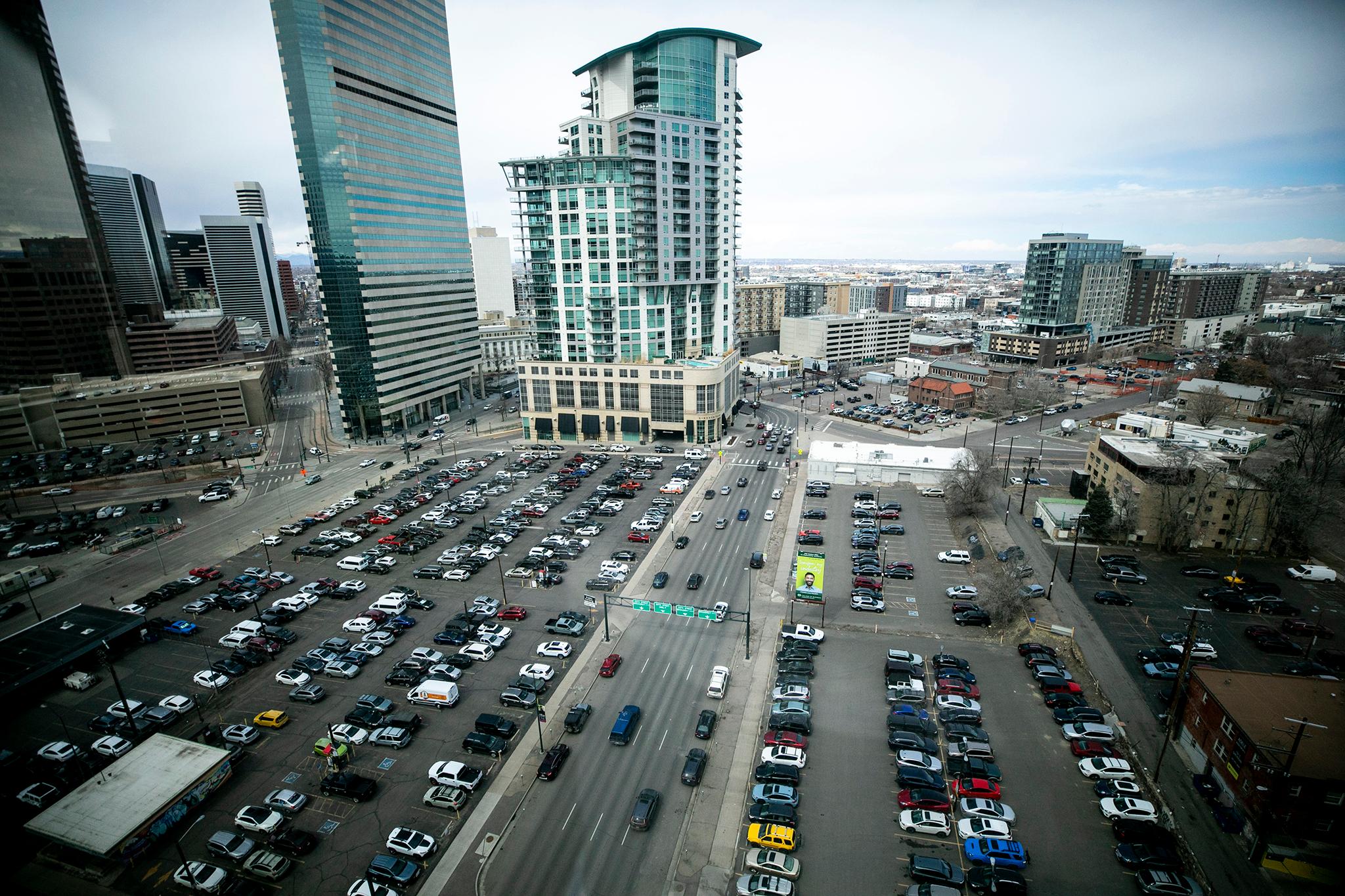This story was originally published by Chalkbeat. Sign up for their newsletters at ckbe.at/newsletters.
Erica Meltzer, Chalkbeat Colorado
A divided Denver school board failed to find much common ground in an hourlong debate Thursday over two competing proposals on the role of police in schools.
The meeting concluded with no decision, with no scheduled vote, and with uncertainty about next steps. The board even discussed setting aside both proposals until they held an up-or-down vote on the policy that was in place for almost two years -a ban on armed police officers on Denver campuses.
Superintendent Alex Marrero had asked the board to decide whether to allow police on campuses and in what circumstances as he finalizes a new school safety plan, and board members presented two different visions.
Board member Scott Baldermann's proposal would allow Marrero to decide when, where, and for how long to station police at Denver schools. The proposal says police would not get involved in discipline but would be present for ensuring safety, deterring crime, mentoring students, and building community.
Baldermann said he hopes Denver schools can benefit from the presence of police without seeing a return to disproportionate discipline, tickets, and arrests that affected students of color.
"I don't want to fall back," Baldermann said.
Board member Scott Esserman countered: "This policy is falling back."
Esserman backs a proposal from Vice President Auon'tai Anderson to direct the superintendent to negotiate a memorandum of understanding with the Denver Police Department to create community resource officers who would receive special training and get to know schools within regions of the city -without being stationed inside buildings.
Anderson called it a "third way" between having school resource officers on campus and the recent status quo, in which school leaders called 911 when safety issues arose and any on-duty officer responded.
"We need to center the needs of our students and not make reactionary decisions," Anderson said.
With Anderson leading the charge, the Denver school board voted in 2020 to remove school resource officers amid the protests that followed the murder of George Floyd by police officers in Minneapolis. Community groups such as Movimiento Poder, formerly known as Padres y Jóvenes Unidos, had been working toward that change for a decade.
Then in March, after a student shot two administrators inside East High School, the board temporarily suspended the ban. Marrero had already publicly stated his intention to bring police back to schools, and after spring break, Denver police officers were stationed at 13 Denver campuses.
The first version of Marrero's safety plan would have allowed building principals to decide whether police should be stationed at their schools. After many principals said they didn't want that responsibility, Marerro asked the Denver school board to make a long-term decision.
In a written statement emailed to Chalkbeat, Denver Police Chief Ron Thomas said he would work with the district wherever the board lands but has a "clear preference" for full-time school resource officers in every large high school.
"They will serve as a layer of safety planning and, more importantly, maintaining positive relationships with youth in schools," Thomas said. "This position was shared with members of the school board. The decision will ultimately be that of DPS. DPD will comply with the direction of the DPS Board and School Administration.
"There are still a number of uncertainties with multiple options still on the table. While the department has begun logistical planning internally for different options, we will not comment about those plans until after a final determination has been made."
The unanimous March vote to temporarily allow police on campuses occurred after a five-hour closed-door meeting and with no public discussion. Thursday's meeting gives the public more insight into how board members are thinking about safety and policing. Esserman said the disagreement is a sign of healthy democracy in action, not dysfunction.
Board President Xóchitl "Sochi" Gaytán called the return of police "inevitable" and said the board should set guidelines such as proposed by Baldermann for what their role should be.
But board member Michelle Quattlebaum said the decision only becomes inevitable after the board votes. She said the board's first decision should be whether it wants to stick with the policy in place from 2020 until March of this year -a ban on police in schools. Only once that policy has been overturned should the board consider a new policy.
Quattlebaum said she wanted to name the "elephant in the room."
"I have Black sons who have gone through DPS and I know what their experience was," she said. "We are talking about policing Black children. That is what we are talking about, without saying it. How do we make sure the white students are safe when they are in school with Black students?"
"I'm just as concerned as about my brown boys and my brown community," Gaytán said. "What I want is a say in what that looks like."
Board member Charmaine Lindsay says she has seen the impact of disproportionate policing and discipline on her 10 grandchildren, who are all children of color. Lindsay, who is white, said she also has seen children meet a bad end that might have been avoided if there had been earlier intervention.
"I've seen kids end up dead and kids end up with 20- or 30-year prison sentences that could have been prevented if someone said, 'you're going to get a ticket' or 'you're going to go to a pathways school,'" she said.
She also said school resource officers could help teachers feel safer, and that shouldn't be overlooked.
Board member Carrie Olson, who was attending remotely, did not weigh in.
With the board reaching a self-imposed deadline for wrapping up the discussion, Anderson suggested holding an up-or-down vote on the previous ban at a future meeting before taking up either of the new proposals. It takes three board members or the president to place something on the agenda.
Baldermann said he feared that ending the ban without agreement on a replacement policy -one possible outcome of an up-or-down vote -would leave Denver students without protections and the superintendent without guidance.
The board's next meeting is Monday, when the board is scheduled to hear public comment. However, the board doesn't have a meeting allowing voting until June 15. The board could also schedule a special meeting.
Bureau Chief Erica Meltzer covers education policy and politics and oversees Chalkbeat Colorado's education coverage. Contact Erica at [email protected].

